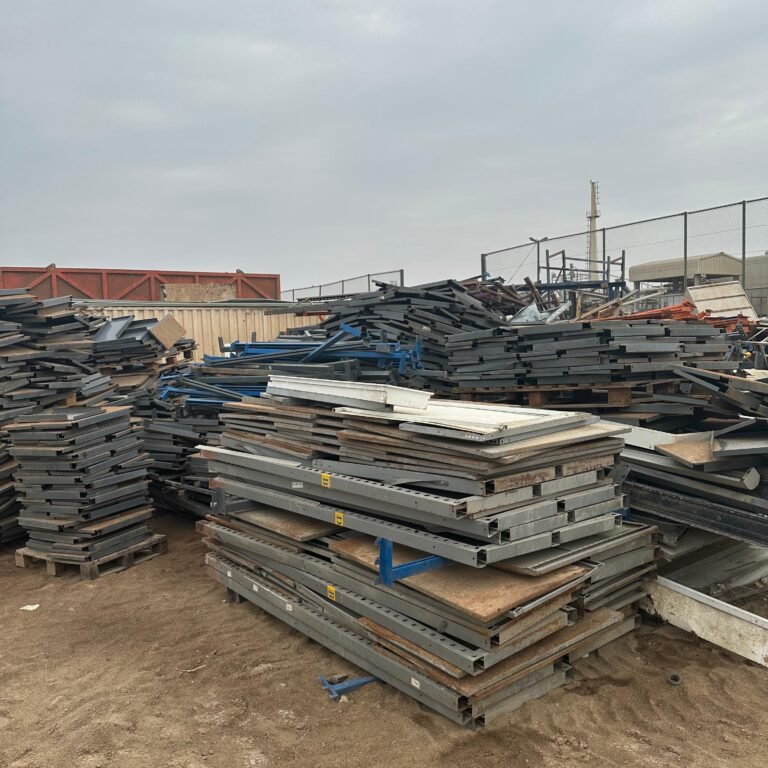
"Transforming Waste into Wealth: The Essential Role of Metal Scrap Services in Sustainability"
In a world that is becoming increasingly conscious of environmental issues and the need for sustainable practices, the role of metal scrap services cannot be overstated. The metal recycling industry plays a pivotal role in not only conserving valuable resources but also in reducing the environmental impact of metal production. This blog explores the significance of metal scrap services and how they contribute to a more sustainable and circular economy.
The Growing Challenge of Metal Waste
As industrialization and urbanization continue to expand, so does the volume of metal waste generated. Discarded metal items, ranging from old appliances to construction materials, contribute significantly to landfills and environmental degradation. Traditional disposal methods often involve burying or incinerating metal waste, both of which have severe consequences for the environment. Burying metals in landfills can lead to soil contamination, while incineration releases harmful pollutants into the air.
The Economic Value of Metal Recycling
Metal scrap services provide a solution to the challenges posed by metal waste. Recycling metals not only conserves natural resources but also offers substantial economic benefits. The process of extracting metals from ore is energy-intensive and environmentally damaging. In contrast, recycling metal requires significantly less energy, making it a more sustainable option.
Metal recycling also stimulates economic growth by creating jobs and fostering a thriving industry. Scrap yards, processing facilities, and manufacturing plants all contribute to a network of economic activities that revolve around the recycling of metal. This not only reduces dependence on mining but also promotes a more circular economy, where materials are reused and repurposed instead of discarded.
Environmental Impact Reduction
One of the primary advantages of metal scrap services is their ability to minimize the environmental impact associated with metal production. Mining and extracting metals from raw ore result in deforestation, habitat destruction, and soil erosion. Additionally, the process releases greenhouse gases and other pollutants into the atmosphere.
By recycling metal, the need for new extraction diminishes, leading to a reduction in these environmental consequences. Furthermore, recycling helps in lowering carbon emissions since the energy required to process recycled metal is considerably less than that needed for virgin metal production. This shift towards sustainable practices aligns with global efforts to combat climate change and preserve natural ecosystems.
Promoting a Circular Economy
Metal scrap services play a pivotal role in promoting a circular economy, a model that emphasizes the continual use and reuse of resources. In a linear economy, products are manufactured, used, and then discarded as waste. However, a circular economy seeks to close the loop by recycling and repurposing materials, extending their lifecycle and minimizing waste.
Metal recycling is a prime example of circularity in action. When metal items reach the end of their usable life, they can be collected, processed, and transformed into new products. This closed-loop system not only conserves resources but also reduces the environmental impact associated with the extraction and production of new metals.
The Role of Technology in Metal Scrap Services
Advancements in technology have significantly enhanced the efficiency of metal scrap services. Innovations such as automated sorting systems, advanced shredding techniques, and sophisticated metal recovery processes have streamlined the recycling workflow. These technological developments not only improve the speed and accuracy of metal recycling but also make it economically viable on a larger scale.
Conclusion
Metal scrap services are at the forefront of the sustainable revolution, turning what was once considered waste into a valuable resource. As the world grapples with the challenges of resource depletion and environmental degradation, the importance of metal recycling cannot be overstated. Through economic benefits, environmental impact reduction, and the promotion of a circular economy, metal scrap services contribute significantly to creating a more sustainable and resilient future. Embracing and supporting these services is not just a responsibility but an opportunity to be active participants in the journey towards a greener, more sustainable planet.
Digital Marketing Services in UAE
